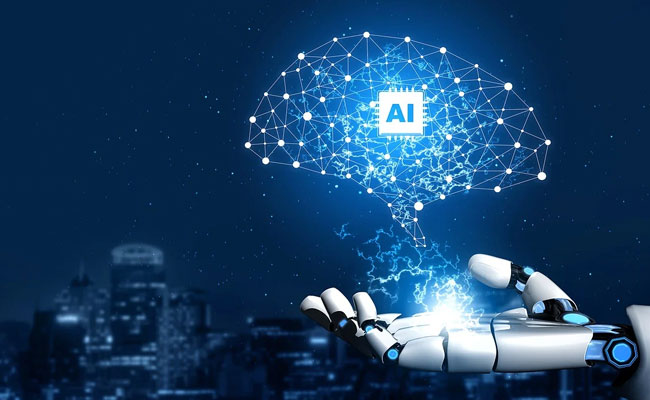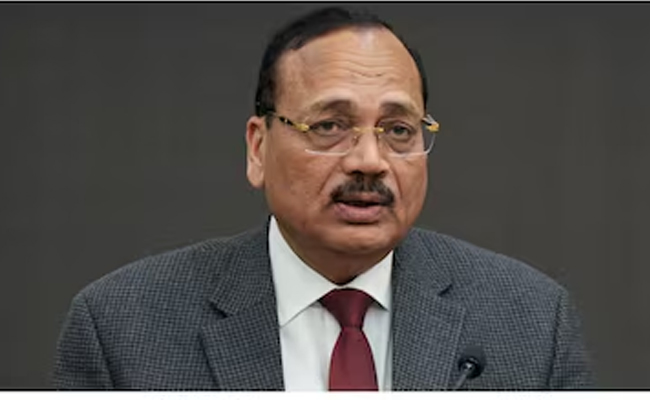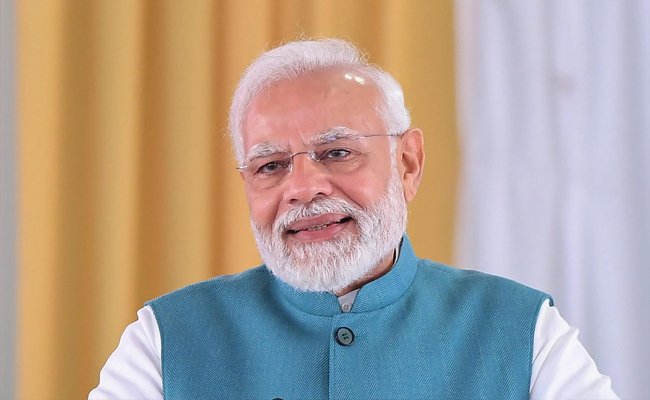Sheffield (The Conversation): BT recently announced that it would be reducing its staff by 55,000, with around 11,000 of these related to the use of artificial intelligence (AI). The remainder of the cuts were due to business efficiencies, such as replacing copper cables with more reliable fibre optic alternatives.
The point regarding AI raises several questions about its effect on the wider economy: what jobs will be most affected by the technology, how will these changes happen and how will these changes be felt?
The development of technology and its associated impact on job security has been a recurring theme since the industrial revolution. Where mechanisation was once the cause of anxiety about job losses, today it is more capable AI algorithms. But for many or most categories of job, retaining humans will remain vital for the foreseeable future.
The technology behind this current revolution is primarily what is known as a large language model (LLM), which is capable of producing relatively human-like responses to questions. It is the basis for OpenAI's ChatGPT, Google's Bard system and Microsoft's Bing AI.
These are all neural networks: mathematical computing systems crudely modelled on the way nerve cells (neurons) fire in the human brain. These complex neural networks are trained on or familiarised with text, often sourced from the internet.
The training process enables a user to ask a question in conversational language and for the algorithm to break the question down into components. These components are then processed to generate a response that is appropriate to the question asked.
The result is a system that's able to provide sensible sounding answers to any question it gets asked. The implications are more wide-ranging than they might seem.
Humans in the loop
In the same way that GPS navigation for a driver can replace the need for them to know a route, AI provides an opportunity for workers to have all the information they need at their fingertips, without "Googling".
Effectively, it removes humans from the loop, meaning any situation where a person's job involves looking up an item and making links between them could be at risk. The most obvious example here is call centre jobs.
However, it remains possible that members of the public would not accept an AI solving their problems, even if call waiting times became much shorter.
Any manual job has a very remote risk of replacement. While robotics is becoming more capable and dexterous, it operates in highly constrained environments. It relies on sensors giving information about the world and then making decisions on this imperfect data.
AI isn't ready for this workspace just yet, the world is a messy and uncertain place that adaptable humans excel in. Plumbers, electricians and complex jobs in manufacturing for example, automotive or aircraft face little or no competition in the long-term.
However, AI's true impact is likely to be felt in terms of efficiency savings rather than outright job replacement. The technology is likely to find quick traction as an assistant to humans. This is already happening, especially in domains such as software development.
Rather than using Google to find out how to write a particular piece of code, it's much more efficient to ask ChatGPT. The solution that comes back can be tailored strictly to a person's requirements, delivered efficiently and without unnecessary detail.
Safety-critical systems
This type of application will become more commonplace as future AI tools become true intelligent assistants. Whether companies use this as an excuse to look to reduce workforces becomes dependent on their workload.
As the UK is suffering a shortage of Stem (science, technology, engineering and mathematics) graduates, especially in disciplines such as engineering, it's unlikely that there will be a loss of jobs in this area, just a more efficient manner of tackling the current workload.
This relies on staff making the most of the opportunities that the technology affords. Naturally, there will always be scepticism, and the adoption of AI into the development of safety-critical systems, such as medicine, will take a considerable amount of time. This is because trust in the developer is key, and the simplest way that it develops is through having a human at the heart of the process.
This is critical, as these LLMs are trained using the internet, so biases and errors are woven in. These can arise accidentally, for example, through a person to a particular event simply because they share the same name as someone else. More seriously, they may also occur through malicious intent, deliberately allowing training data to be presented that is wrong or even intentionally misleading.
Cybersecurity becomes an increasing concern as systems become more networked, as does the source of data used to build the AI. LLMs rely on open information as a building block that is refined by interaction. This raises the possibility of new methods for attacking systems by creating deliberate falsehoods.
For example, hackers could create malicious sites and put them in places where they are likely to be picked up by an AI chatbot. Because of the requirement to train the systems on lots of data, it's difficult to verify everything is correct.
This means that, as workers, we need to look to harness the capability of AI systems and use them to their full potential. This means always questioning what we receive from them, rather than just trusting their output blindly. This period brings to mind the early days of GPS, when the systems often led users down roads unsuitable for their vehicles.
If we apply a sceptical mindset to how we use this new tool, we'll maximise its capability while simultaneously growing the workforce as we've seen through all the previous industrial revolutions.
Let the Truth be known. If you read VB and like VB, please be a VB Supporter and Help us deliver the Truth to one and all.
Jaisalmer (PTI): Pushing for a "unified judicial policy", Chief Justice of India Surya Kant on Saturday said technology can help align standards and practices across courts, creating a "seamless experience" for citizens, regardless of their location.
He said high courts -- due to the federal structure -- have had their own practices and technological capacities, and "regional barriers" can be broken down with technology to create a more unified judicial ecosystem.
Delivering the keynote address at the West Zone Regional Conference in Jaisalmer, Kant proposed the idea of a "national judicial ecosystem" and called for an overhaul of India's judicial system with the integration of technology.
"Today, as technology reduces geographical barriers and enables convergence, it invites us to think of justice not as regional systems operating in parallel, but as one national ecosystem with shared standards, seamless interfaces, and coordinated goals," he said.
He emphasised how the role of technology in the judiciary has evolved over time.
"Technology is no longer merely an administrative convenience. It has evolved into a constitutional instrument that strengthens equality before the law, expands access to justice, and enhances institutional efficiency," he said, highlighting how digital tools can bridge gaps in the judicial system.
Kant pointed out that technology enables the judiciary to overcome the limitations of physical distance and bureaucratic hurdles.
"It allows the judiciary to transcend physical barriers and bureaucratic rigidities to deliver outcomes that are timely, transparent and principled," he said, adding that the effective use of technology can modernise the delivery of justice and make it more accessible to citizens across the country.
The CJI called for implementing a "unified judicial policy".
He said India's judicial system has long been shaped by its federal structure, and different high courts have their own practices and technological capacities.
"India's vast diversity has led to different high courts evolving their own practices, administrative priorities and technological capacities. This variation, though natural in a federal democracy, has resulted in uneven experiences for litigants across the country," he said.
Kant underscored that predictability is crucial for building trust in the judicial system.
"A core expectation citizens place upon the courts is predictability," he said, adding that citizens should not only expect fair treatment but also consistency in how cases are handled across the country.
He pointed to the potential of technology in improving predictability.
"Technology enables us to track systemic delays and make problems visible rather than concealed," he said.
By identifying areas where delays occur, such as in bail matters or cases involving certain types of disputes, courts can take targeted action to address these issues and improve efficiency, Kant said.
The CJI explained that data-driven tools could identify the reasons behind delays or bottlenecks, allowing for faster, more focused solutions.
"Technology enables prioritisation by flagging sensitive case categories, monitoring pendency in real time and ensuring transparent listing protocols," he said.
Justice Surya Kant also discussed the importance of prioritising urgent cases where delays could result in significant harm. He highlighted his recent administrative order that ensures urgent cases, such as bail petitions or habeas corpus cases, are listed within two days of curing defects.
"Where delay causes deep harm, the system must respond with urgency," he stated, explaining that technology can help courts identify and expedite such cases.
Kant also raised the issue of the clarity of judicial decisions.
He noted that many litigants, despite winning cases, often struggle to understand the terms of their judgment due to complex legal language.
"Although the orders had gone in their favour, they remained unsure of what relief they had actually secured because the language was too technical, vague or evasive to understand," he said.
He advocated for more uniformity in how judgments are written.
"A unified judicial approach must therefore extend to how we communicate outcomes," he said.
The CJI also discussed the role of AI and digital tools in improving case management. He pointed to the potential of AI-based research assistants and digital case management systems to streamline judicial processes.
"Emerging technological tools are now capable of performing once-unthinkable functions. They can highlight missing precedent references, cluster similar legal questions, and simplify factual narration," he said, explaining how these technologies can help judges make more consistent decisions.
He also highlighted tools like the National Judicial Data Grid and e-courts, which are already helping to standardise processes like case filings and tracking.
Kant reiterated that the integration of technology into the judicial process is not just about improving efficiency but about upholding the integrity of the system and strengthening public trust.
"The measure of innovation is not the complexity of the software we deploy, but the simplicity with which a citizen understands the outcome of their case and believes that justice has been served," he said.





